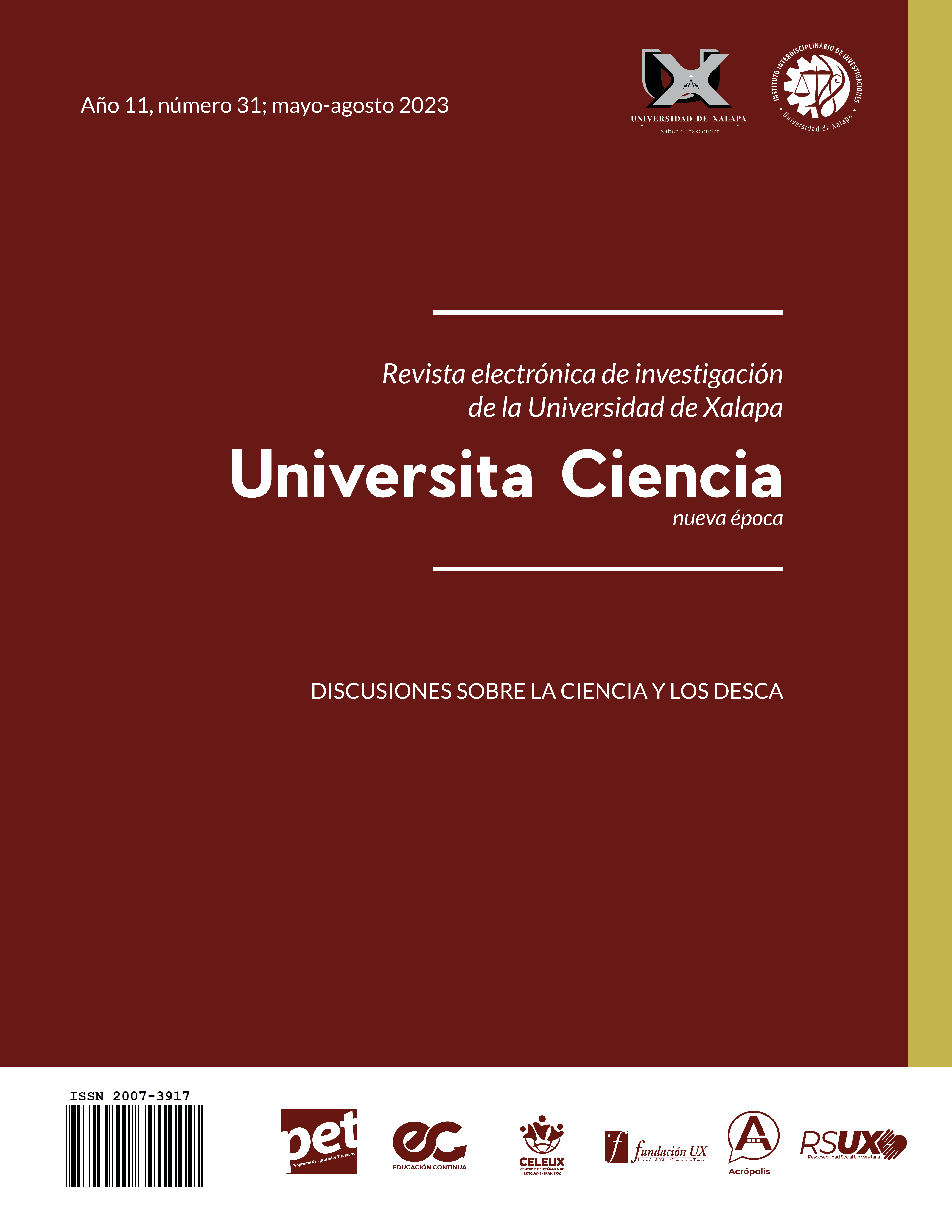Analysis of Human Rights in the Mexican Constitutional State
DOI:
https://doi.org/10.5281/zenodo.8178954Keywords:
Constitution, human rights, PrinciplesAbstract
Under a concept of State, Mexico is made up of a population established in a certain territory, endowed with a sovereign government and governed by a legal order in search of the common good. Based on this, the evolution in the perception of human rights has resulted in the emergence of new paradigms that significantly reorganize the essence of the legal system, among these forms of knowledge, the inclusion of new principles such as conforming interpretation and pro persona can be observed. In this way, by renewing the content of the General Political Constitution, the laws that emanate from it, and the international treaties to which the Mexican State is a party, positive properties emerge to identify human rights as an essential element to consolidate the Mexican Constitutional State.
Metrics
References
Azuela Rivera, S. (2012). Curso de derecho constitucional. Suprema Corte de Justicia de la Nación y Benemérita Universidad Autónoma de Puebla, Facultad de Derecho y Ciencias Sociales.
Burgoa Orihuela, I. (2007). Las garantías individuales. Porrúa.
Cárdenas Gracía, J. (2017). Del Estado absoluto al Estado neoliberal. Instituto de Investigaciones Jurídicas de la Universidad Nacional Autónoma de México.
Carreón Perea, M. J. y Mansilla-Moya, M. (2021). Contexto general de los derechos humanos en México. Métodhos, 21, 7-33.
Cienfuegos Salgado, D. (2017) Una historia de los derechos humanos en México. Reconocimiento constitucional y jurisdiccional. Comisión Nacional de Derechos Humanos.
Corte Interamericana de Derechos Humanos (2022, 7 de noviembre) Sentencia Tzompaxtle Tecpile y otros vs México. https://www.corteidh.or.cr/docs/casos/articulos/seriec_470_esp.pdf
Corte Interamericana de Derechos Humanos (2023, 25 de enero) Sentencia García Rodríguez y otro vs México. https://www.corteidh.or.cr/docs/casos/articulos/seriec_482_esp.pdf
De la Cueva y de la Rosa, M. (2014). Teoría general del Estado. Suprema Corte de Justicia de la Nación y Benemérita Universidad Autónoma de Puebla, Facultad de Derecho y Ciencias Sociales.
Fernández Ruiz, J. (2015). Poder Legislativo. Porrúa.
García Máynez, E. (2013). Introducción al estudio del derecho. Porrúa.
González Casanova, P. (1989). La democracia en México. Ediciones Era.
Guastini, R. (2015). Sobre el concepto de Constitución (Carbonell, M., trad.). Neoconstitucionalismo (Carbonell, M., coord.). Centro de Estudios Jurídicos Carbonell.
Häberle, P. (2018). El Estado constitucional. (Fix-Fierro, H., trad.) Instituto de Investigaciones Jurídicas de la Universidad Nacional Autónoma de México.
Hamdan Amad, F. (2017). Derecho administrativo. Suprema Corte de Justicia de la Nación y Escuela Libre de Derecho.
Hemerografía
Kelsen, H. (2019). Teoría pura del derecho. Porrúa.
Moto Salazar, E. (2017). Elementos de derecho. Porrúa.
Ostos Luzuriaga, A. (2017). Curso de garantías y amparo. Suprema Corte de Justicia de la Nación y Escuela Libre de Derecho.
Porrúa Pérez, F. (2016). Teoría del Estado. Porrúa.
Ramírez García, H. S. (2023). La constitucionalización de la persona: un marco de la relación entre el estado de derecho y los derechos humanos. Cuestiones constitucionales, 47, 1-27.
Roldán Orozco, O. G. (2015). La función garante del estado constitucional y convencional de derecho. Instituto de Investigaciones Jurídicas de la Universidad Nacional Autónoma de México.
Serra Rojas, A. (2016). Ciencia política. Porrúa.
Suprema Corte de Justicia de la Nación [SCJN] (2017). Decisiones relevantes de la Suprema Corte de Justicia de la Nación. Derechos humanos tanto de fuente constitucional como convencional y parámetro de la regularidad constitucional. Contradicción de tesis 293/2011 y 21/2011. Instituto de Investigaciones Jurídicas de la Universidad Nacional Autónoma de México y la Suprema Corte de Justicia de la Nación.
Suprema Corte de Justicia de la Nación [SCJN] (2017). Derechos Humanos Parte General, Suprema Corte de Justicia de la Nación.
Tesis: 1a./J. 37/2017, Primera Sala, Semanario Judicial de la Federación y su Gaceta, Décima Época t. I, mayo de 2017, p. 239.
Tesis: I.5o.C. J/30, Tribunales Colegiados de Circuito, Semanario Judicial de la Federación y su Gaceta, Décima Época t. III, octubre de 2011, p. 1528.
Tesis: IV.2o.A.15 K, Tribunales Colegiados de Circuito, Semanario Judicial de la Federación y su Gaceta, Décima Época t. II, junio de 2013, p. 1289.
Zaldívar, A. (2022). 10 años de derechos. Autobiografía jurisprudencial. Tirant lo Blanch.
Published
How to Cite
Issue
Section
License

This work is licensed under a Creative Commons Attribution-NonCommercial-ShareAlike 4.0 International License.
This journal adheres to the Creative Commons license in the definition of its policy of open access and reuse of published material, in the following terms:
- Accessibility to articles and other publications in whole or in part under the concept of copying, distribution, public communication , interactive access (through the Internet or other means), explicitly maintaining the recognition of the author or authors and the journal itself (authorship acknowledgment).
- Warning that if the articles are remixed, modified or fragments used in other creations, the modified material cannot be distributed, nor is it allowed to reconstruct versions from the original published articles (derived works).
- The use of the contents of the published articles, in whole or in part, for profit (non-commercial recognition) is prohibited.
The author retains copyright, transfers or grants exclusive commercial rights to the publisher, and a non-commercial license is used.














